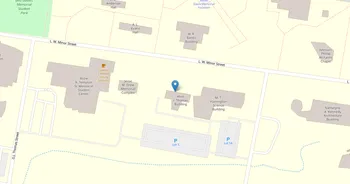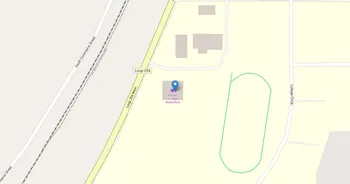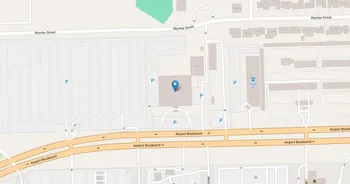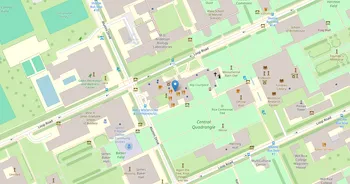Paul Quinn College (PQC) : Overview, Courses, Scholarships & Rankings
About Paul Quinn College
On a former football field, a working farm anchors Paul Quinn College's hands-on approach to learning. The Dallas HBCU is known for an urban work-college model that blends academics with real responsibilities, giving studies in business, communications, liberal arts, and social impact a practical edge. Faculty mentorship and project based coursework emphasize problem solving, community leadership, and clear writing. It feels personal here, with a focus on purpose and practice.
Students find a compact campus with study spaces, a library, a career center, tutoring and advising, wellness support, and places to gather. Life outside class runs through student led clubs, service projects, arts events, and intramurals. Career prep leans on the city's employers, nonprofits, and civic groups, so internships and networking are close by. And the surrounding community offers local eateries, arts, and real chances to pitch in. The culture is welcoming, proud, and forward looking, with traditions rooted in service and that distinctive farm many students help tend.
Key Institutional Details
Contact & Profile
Academic & Institutional
Academic Programs & Fields of Study
Paul Quinn College (PQC) offers 7 degree programs across 5 major academic fields, graduating approximately 69 students annually. The most popular fields by graduate volume are Business (3 programs, 34 graduates), Liberal Arts (1 programs, 12 graduates), Psychology (1 programs, 12 graduates), Health (1 programs, 10 graduates) and Social Sciences (1 programs, 1 graduates). Explore program details, award levels, and graduate demographics below.
Business (3 programs, 34 graduates)
Business Administration, Marketing and Entrepreneurship
| Program Name | Graduates | Gender Distribution | Award Levels | CIP Code |
|---|---|---|---|---|
| Business Administration and Management | 23 |
|
Bachelor's
Master's
|
52.0201 |
| Entrepreneurship Studies | 9 |
|
Bachelor's
|
52.0701 |
| Accounting and Business Management | 2 |
|
Bachelor's
|
52.0305 |
Liberal Arts (1 programs, 12 graduates)
Liberal Arts Education, General Studies and Humanities
| Program Name | Graduates | Gender Distribution | Award Levels | CIP Code |
|---|---|---|---|---|
| General Studies | 12 |
|
Bachelor's
|
24.0102 |
Psychology (1 programs, 12 graduates)
Psychological Sciences, Mental Health and Behavioral Studies
| Program Name | Graduates | Gender Distribution | Award Levels | CIP Code |
|---|---|---|---|---|
| General Psychology | 12 |
|
Bachelor's
|
42.0101 |
Health (1 programs, 10 graduates)
Healthcare Professions, Medical Sciences and Clinical Practice
| Program Name | Graduates | Gender Distribution | Award Levels | CIP Code |
|---|---|---|---|---|
| Health and Wellness | 10 |
|
Bachelor's
|
51.0001 |
Social Sciences (1 programs, 1 graduates)
Sociology, Anthropology and Political Science Studies
| Program Name | Graduates | Gender Distribution | Award Levels | CIP Code |
|---|---|---|---|---|
| Political Science and Government | 1 |
|
Bachelor's
|
45.1001 |
Admission Requirements & Test Scores
Comprehensive overview of admission criteria, standardized test score ranges, and application requirements for prospective students at Paul Quinn College (PQC).
Application Requirements
Data based on IPEDS for 2022-2023 academic year. Test score ranges represent the middle 50% of admitted students (25th-75th percentile). Requirements may vary by program.
Tuition, Fees & Estimated Costs
Overview of tuition rates, housing, and other annual education expenses for undergraduate and graduate students
Financial Aid & Student Support
Summary of scholarships, grants, student loans, and financial aid statistics for undergraduate students
Student Success Metrics
Graduation rates and post-graduation earnings to help assess student outcomes and long-term value of education.
Loan Burden & Repayment Outcomes
Breakdown of loan repayment rates and student debt levels by income and dependency status.
Frequently Asked Questions
Find answers to the most common questions about Paul Quinn College (PQC)
How much does it cost to attend Paul Quinn College (PQC)?
The annual tuition at Paul Quinn College (PQC) is $13,498 for in-state students. When including room and board, books, and other expenses, the total estimated cost is approximately $24,748 for in-state students. Additional costs include room and board $7,650 (on) / $9,460 (off) and books and supplies $1,000.
Data based on IPEDS program completions for 2022-2023 academic year. Tuition and cost estimates are approximate and may not include all fees, personal expenses, or transportation costs.
What academic programs and degree levels does Paul Quinn College offer?
Paul Quinn College (PQC) offers 7 academic programs across 5 major fields of study, with available degree levels: Bachelor's, Master's.
Most popular program areas include:
- Business Administration, Marketing and Entrepreneurship (3 programs)
- Liberal Arts Education, General Studies and Humanities (1 programs)
- Psychological Sciences, Mental Health and Behavioral Studies (1 programs)
- Healthcare Professions, Medical Sciences and Clinical Practice (1 programs)
- Sociology, Anthropology and Political Science Studies (1 programs)
Data based on IPEDS program completions for 2023-2024 academic year. Numbers reflect programs where students graduated, not all offered programs.
What is the acceptance rate for Paul Quinn College?
Paul Quinn College (PQC) has an 33.8% acceptance rate and a 14.5% yield rate, making it highly selective.
Admission statistics breakdown:
- Total applicants: 3,398
- Students admitted: 1,149
- Students enrolled: 167
Data based on IPEDS for 2022-2023 academic year. Admission statistics may vary by program and application cycle.
What financial aid and scholarships are available at Paul Quinn College?
Paul Quinn College (PQC) provides financial aid to 13% of first-time, full-time students, with average grants of $6,771 and average loans of $1,654.
Average financial aid amounts by type:
- Pell grants: $3,017
- State/Local grants: $1,289
- Institutional grants: $1,280
- Federal loans: $1,654
The university supports 55 students with grants and 55 students with loans annually.
Data based on IPEDS for 2022-2023 academic year. Financial aid amounts and percentages may vary by program, enrollment status, and individual circumstances.
What is the average salary for Paul Quinn College graduates?
Paul Quinn College (PQC) graduates earn a median salary of $27,021 after 6 years and $29,288 after 10 years.
The salary range 10 years after graduation spans from $12,935 (25th percentile) to $45,883 (75th percentile), with top earners reaching $53,500 (90th percentile).
Data based on IPEDS for 2022-2023 academic year. Salary data reflects graduates who received federal financial aid (approximately 60% of all graduates). Actual earnings may vary significantly based on program, location, and individual circumstances.
Related Universities




Found something useful? Help others discover it too! Share with friends, on social media, or save for later - every share helps someone find the information they need.